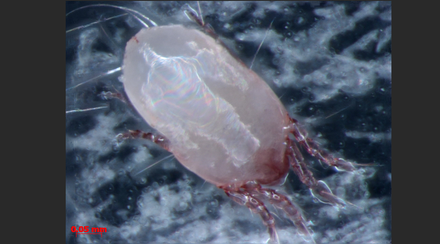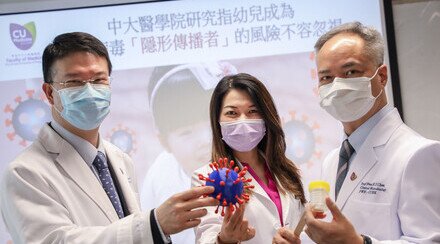CU Medicine Studies Suggest Grass Carp as a Major Source of Fish Allergy in Hong Kong And Identify Novel Allergenic Marker Cten i 1 to Promote Accurate Diagnosis
Fish allergy is a common food allergy, affecting 0.25% of the preschool child population in Hong Kong. The conventional fish allergy tests are based on allergen markers derived from Western fish types such as codfish and salmon. These fish are, comparatively, consumed less in the Chinese community than freshwater fish like grass carp, meaning there may be a loophole in the diagnostic accuracy of fish allergy for children.
The Faculty of Medicine at The Chinese University of Hong Kong (CU Medicine) has conducted two researches to thoroughly study the characteristics of Chinese fish-allergic patients in Hong Kong. Results showed that grass carp is more of a leading cause of fish allergy than other species for children in Hong Kong. The research team has also discovered a new allergenic marker from grass carp parvalbumin registered as Cten i 1 in the World Health Organisation and the International Union of Immunological Societies allergen database for diagnosis. The findings have been published in international journals Journal of Allergy and Clinical Immunology: In Practice and Pediatric Allergy and Immunology .
Accurate allergy test promotes appropriate food avoidance
Fish, alongside cow’s milk, hen’s egg, peanut, tree nut, and shellfish contribute to more than half of food-allergic reactions worldwide. Fish allergy has an early onset and persists throughout life. Allergic reactions to fish range from mild skin or gastrointestinal symptoms to life threatening anaphylaxis. The major fish allergen is the heat-stable muscle protein parvalbumin. Variable allergenicity was found among different fish species due to the differential expression levels of parvalbumin in muscle.
Professor Ting Fan LEUNG from the Department of Paediatrics of CU Medicine explained, “Fish is commonly consumed in our daily diet and has crucial nutrition such as protein and Omega3 for the growth of our kids. Many of the standard fish allergy tests available nowadays are based on fish models from the West such as salmon and codfish which are not mainstream in the Chinese diet, meaning there may be a loophole in the current tests. Some fish-allergic patients can tolerate selective fish species even if they have allergic reactions against other fish species. Therefore, we believe more fish species such as freshwater fish should be included in the allergy test in order to provide a comprehensive profile for accurate clinical diagnosis and promote appropriate food avoidance.”
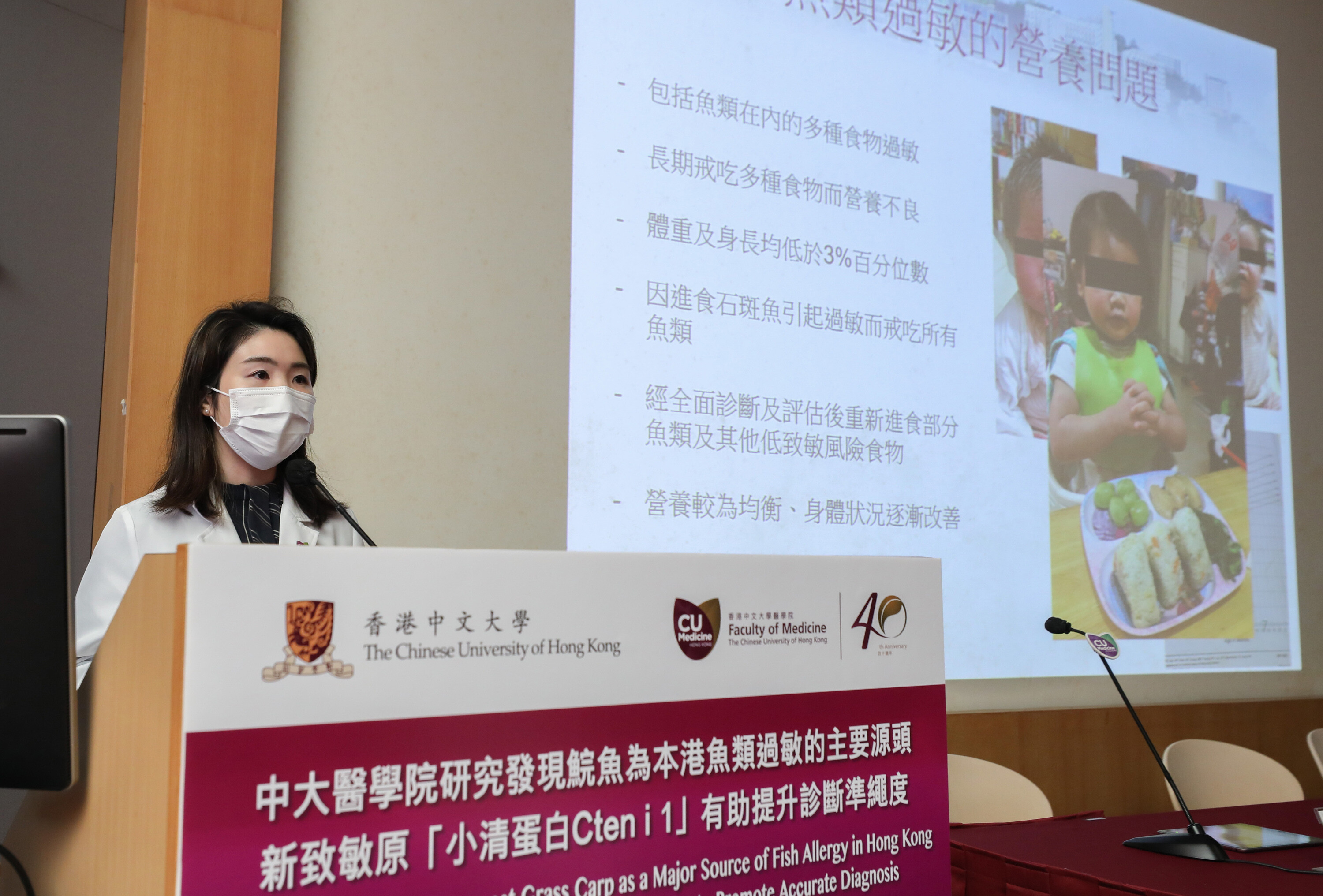
Dr. Agnes LEUNG says urticarial is the most common symptom from fish allergy, followed by angioedema on eye lids or lips. Severe cases may result in anaphylaxis which is life threatening.

Professor Ting Fan LEUNG says they believe more fish species such as freshwater fish should be included in the allergy test to help provide a comprehensive profile for accurate clinical diagnosis and enable appropriate food avoidance.
Grass carp is a major source of fish allergy; partial tolerance is observed among patients
In order to evaluate the clinical characteristics of Chinese fish-allergic patients and the diagnostic performance of specific IgE (Immunoglobulin E, a type of antibody linked to allergy) to fish allergens, researchers from the Department of Paediatrics of CU Medicine recruited 28 subjects with a history of immediate allergic reactions within two hours after fish consumption for a double-blind, placebo controlled food challenge to study their profile of fish allergens.
All subjects were offered oral titrated challenges with grass carp, salmon, and placebo on three separate days in randomised order, each at least 48 hours apart. Results are illustrated in the table below:
Result of fish challenge | Positive | Negative |
Total | 20 | 8 |
Allergic to grass carp only | 14 | - |
Allergic to salmon only | 1 | - |
Allergic to grass carp and salmon | 5 | - |
Dr. Agnes Sze Yin LEUNG, Clinical Lecturer of the Department of Paediatrics at CU Medicine remarked, “Our study showed partial tolerance to selective fish species is common in Chinese fish-allergic patients. In other words, for some patients who are allergic to grass carp, they can consume salmon or other fish species, and vice versa. This has a very important implication for our clinical practice. We suggest the choice of fish allergens for specific IgE measurement should be tailored to individual fish-allergic patients. And among the various species we examined, grass carp is a major source of fish allergy among our study population.”
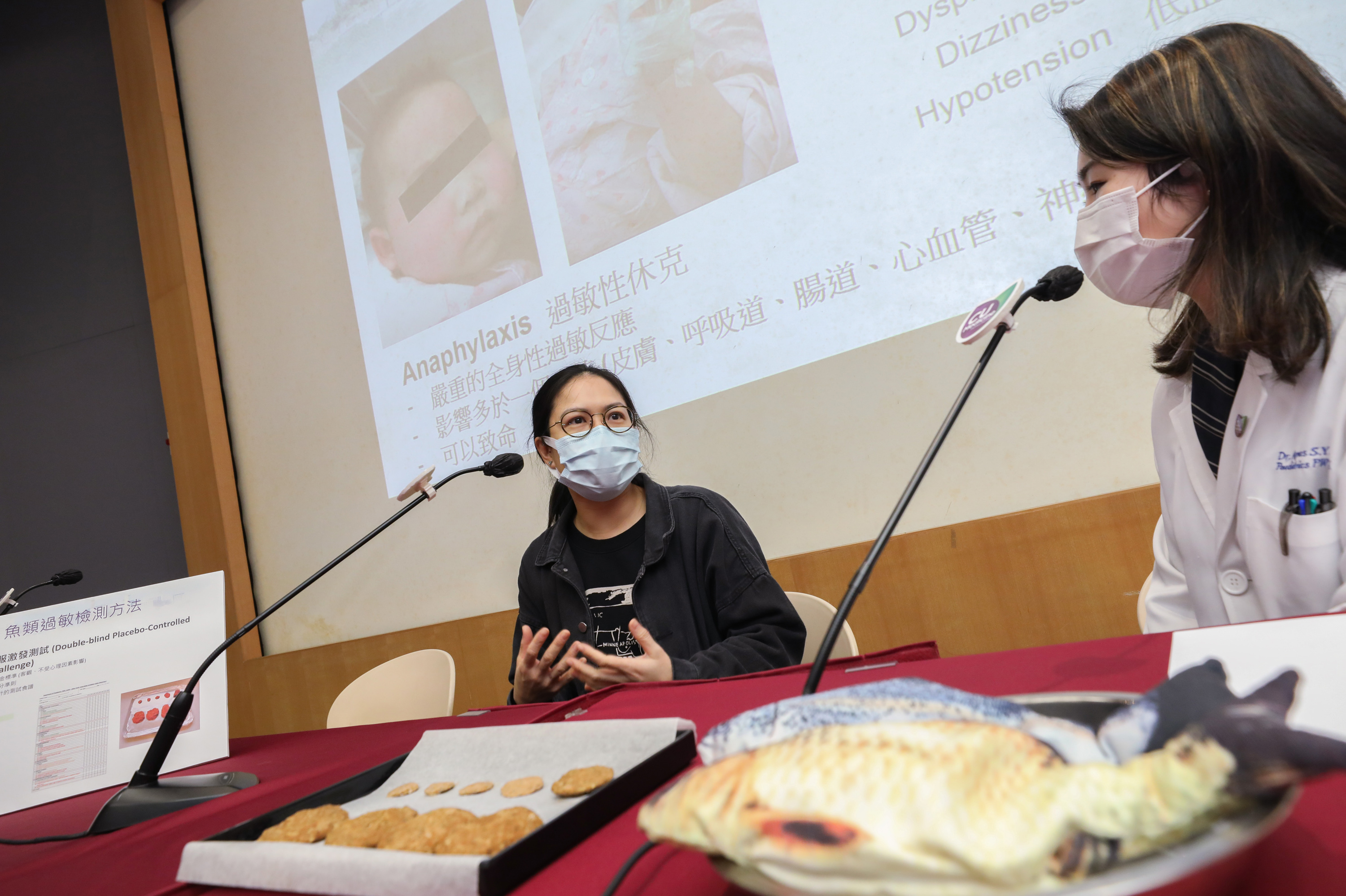
Mrs. HO’s daughter had her first little bite of fish when she was eight months old and appeared with severe allergic reactions such as vomiting constantly and had rashes all over her face. She was admitted to the hospital for treatment. After several failed attempts on fish, she has stopped her daughter from eating any kind of fish. Mrs. HO was later introduced to the double-blind placebo-controlled oral food challenge run by CU Medicine and found that her daughter is indeed tolerant to salmon. She gradually adopted salmon into her daughter’s meals in order to provide her with a more balanced diet.
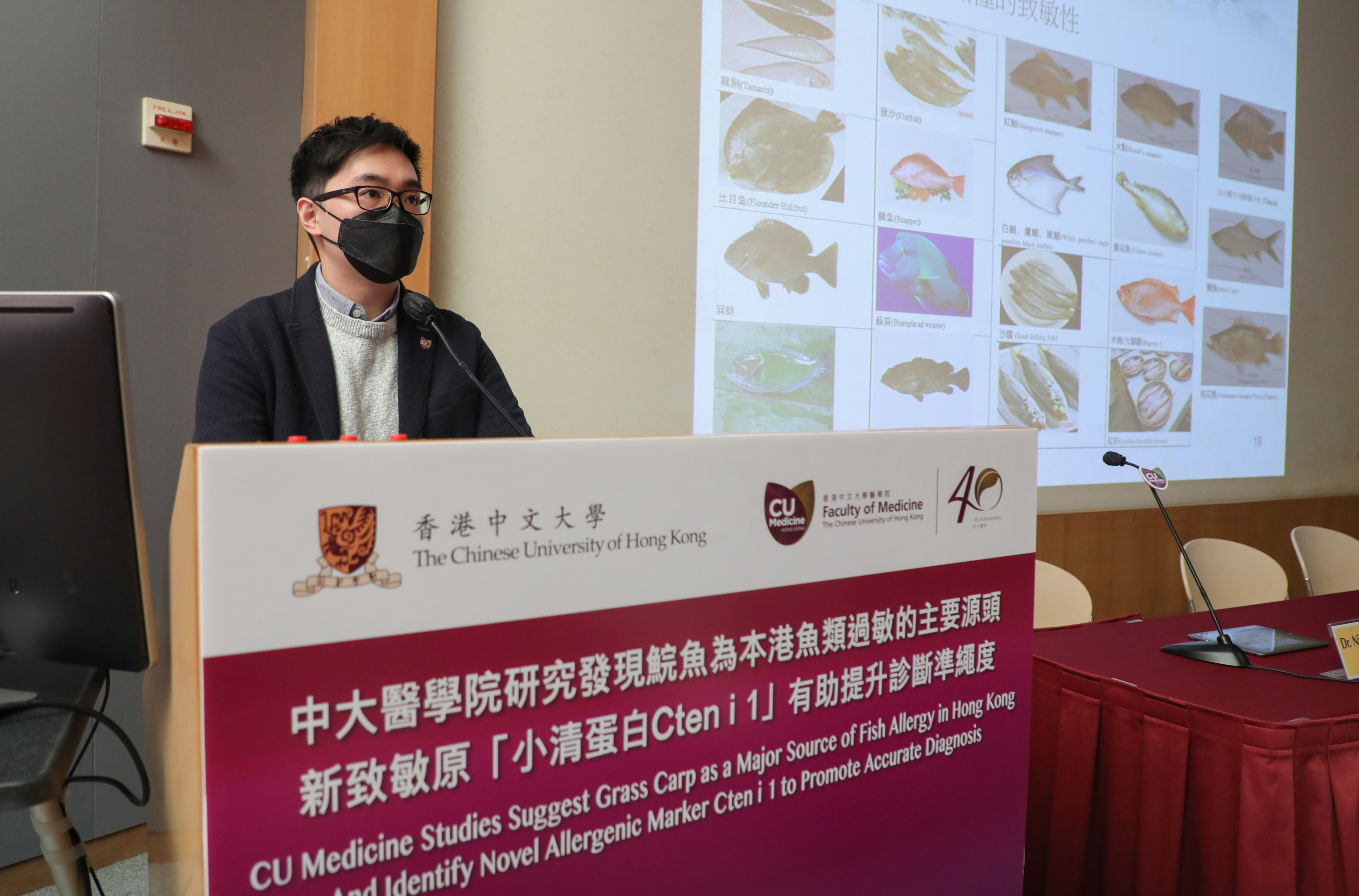
Dr. Nicki LEUNG says their team is going to explore the allergenicity of other common fish species in Hong Kong.
Identification of a novel allergenic marker Cten i 1 from grass carp
A local survey suggested grass carp is the top consumed fish species by children in Hong Kong. The Department of Paediatrics conducted another study to investigate the allergenicity of grass carp which has remained largely unknown. The team recruited 69 subjects with a history of IgE mediated allergic reaction to grass carp and studied their profile of specific IgE reactivity to different fish species through a blood test.
| Specific IgE (median) |
Grass carp | 4.85kUA/L |
Cod | 1.75kUA/L |
Salmon | 1.34kUA/L |
*kUA/L = kilo units of Allergen per liter
Results showed that grass carp had a higher IgE reactivity when compared to cod and salmon. The team further purified the native parvalbumins from fish and identified Cten i 1 from grass carp parvalbumin with the highest IgE reactivity, while salmon parvalbumin Sal s 1 was the lowest.
Dr. Nicki Yat Hin LEUNG, postdoctoral fellow of the Department of Paediatrics at CU Medicine said, “Specific IgE against cod and salmon is often chosen as the substitute test when evaluating patients with suspected fish allergy. However, our study showed the diagnostic value and clinical relevance of specific IgE to cod and salmon are poor in the Hong Kong population and may lead to falsely negative results. We explored if a species relative to diet could serve as a better diagnostic tool and successfully proved it with grass carp. Our investigation has also identified a novel allergenic marker Cten i 1 and registered it in the World Health Organisation and the International Union of Immunological Societies allergen database for diagnosis. We believe this will enhance the accuracy and specificity of future allergic tests.”
Professor LEUNG added, “Based on this groundbreaking finding, our team is further working on allergy tests based on IgE or basophil activation level and hopefully they will bring more good news to fish allergy patients. We welcome the general public to participate in our studies to provide a more comprehensive profile of the allergy food source among the Hong Kong population.”

“Double-blind placebo-controlled oral food challenge” is a gold measurement for food allergy diagnosis. The meat pies shown in the photo are with a mixture of pork and grass carp. Each of the pieces are in different portion of grass carp for accurate testing. Since different herbs and flavorings are added to the meat pies, participant can hardly tell what are the ingredients.
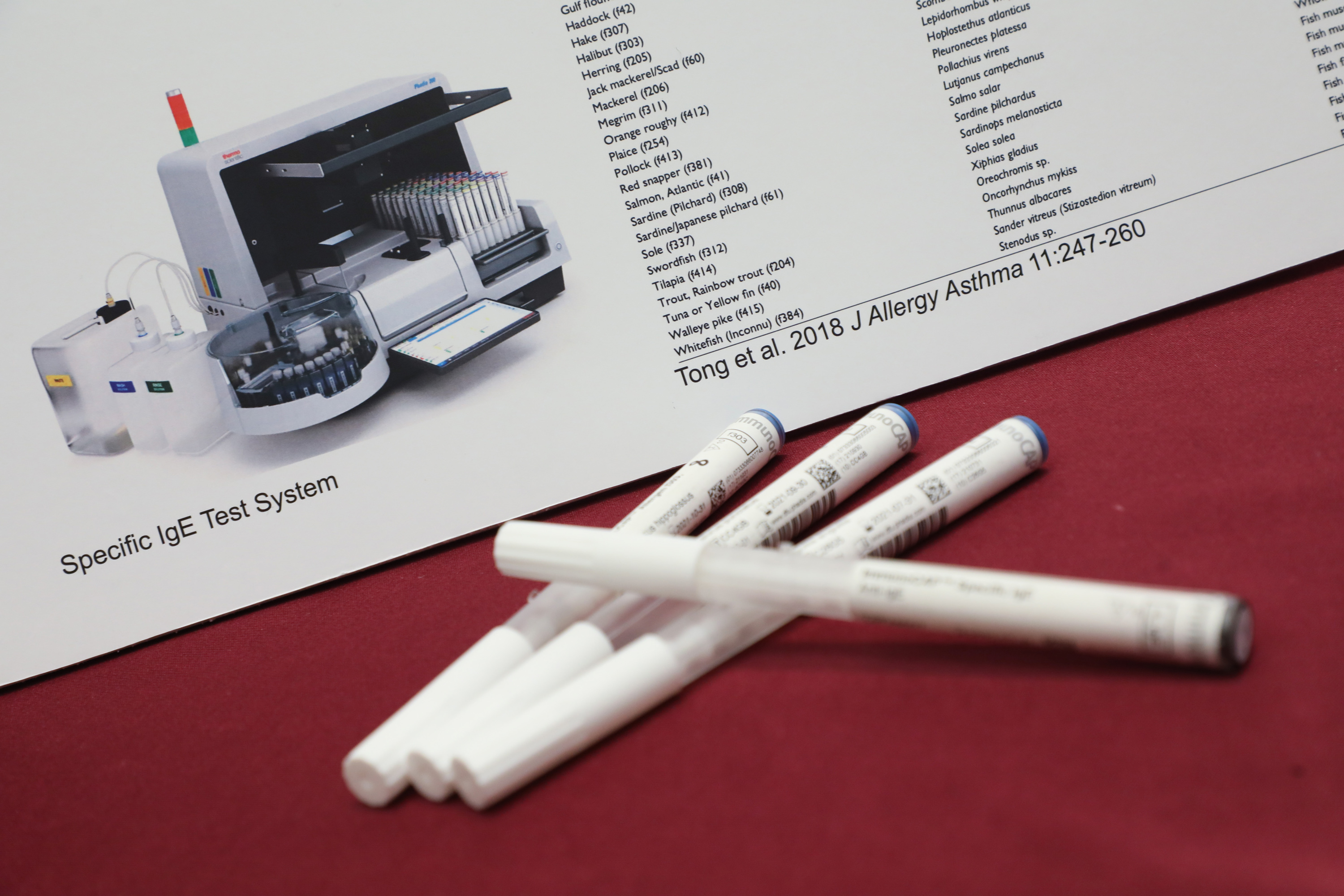
The specific IgE system detects your source of fish allergen through the specific IgE in serum. However, there are only 28 types of fish included in the system and that many of them belongs to species mainly consumed in the West.
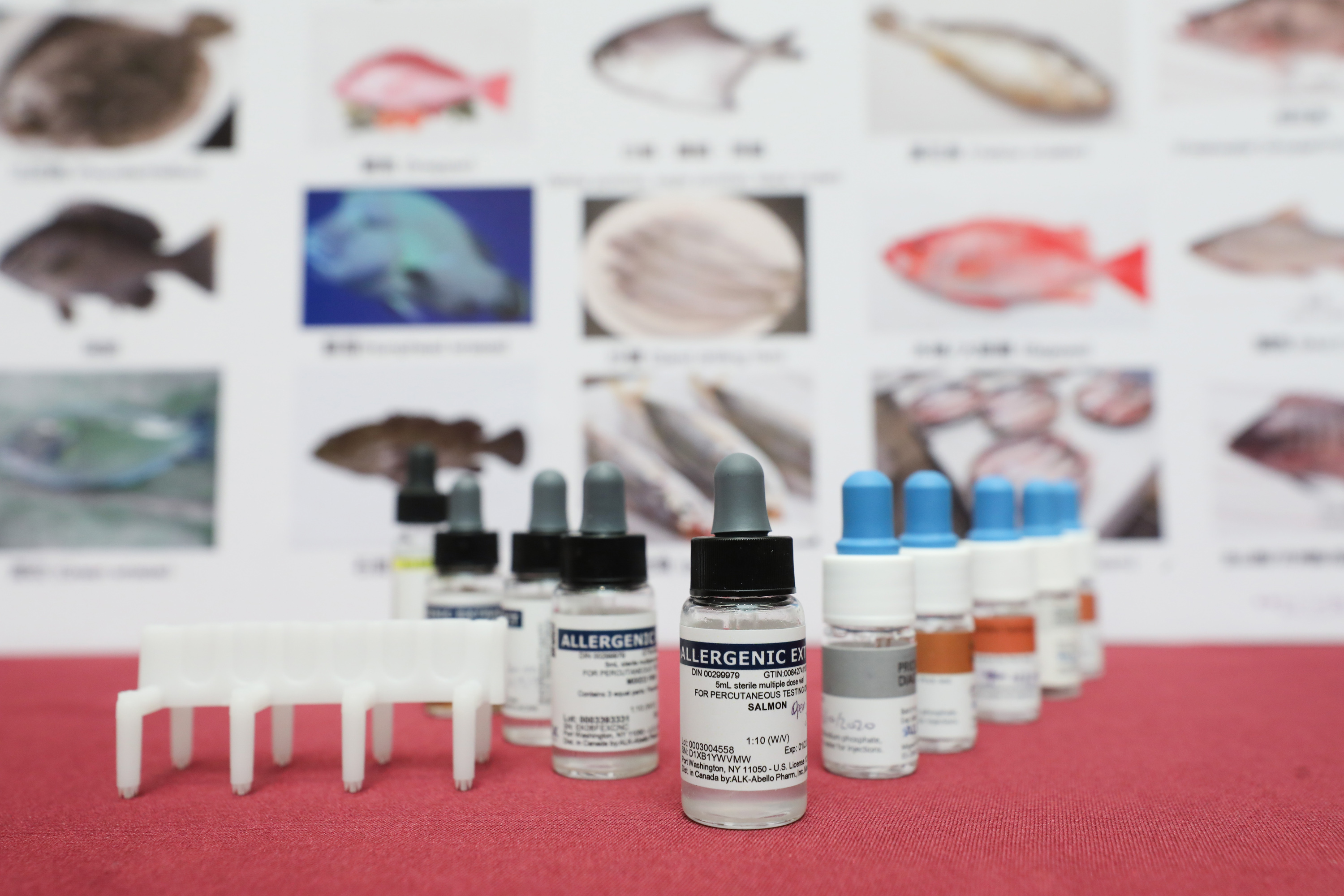
Skin prick test is usually served as a preliminary screening for allergy. A small amount of a substance, such as fish extract is inserted in the skin and wait to see what happens. If the subject is allergic to the substance, an elevated bump will appear.





